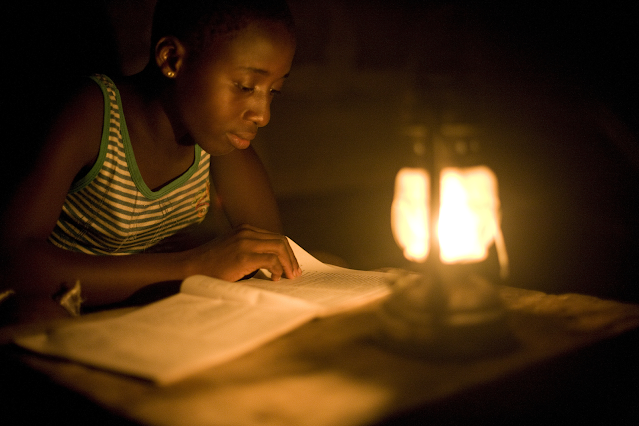Global warming and my neighbour's generator
The time is 10:15 pm. There is no electricity, and my neighbour's generator set is on. I can barely think through the noise, so I try to sleep instead, but even that is proving to be too much to handle. It feels as though the sweltering heat is accentuating the noise of the generator. I can hardly believe that the month is December. The rainy season should be giving way to the cool Harmattan wind, but it's hard to say if there was a rainy season at all. The rains came and went so haphazardly for several months that I wonder how our farmers have coped since most of Nigeria’s agriculture is rain-fed.
I suppose these variations are largely due to global warming. I have read of melting Arctic sea ice, deforestation in the Amazon and the boreal forests of Canada and Russia, and the loss of coral reefs, but I have never quite understood how these events affect me. It was not long ago that they felt so far away, but this present discomfort brings it close to home. It is amazing how a global temperature rise of 1-degree Celsius since the beginning of the industrial period can be so distressing. I cannot work neither can I sleep, but it appears many more Nigerians have even bigger climate change-related problems to contend with. Heavy rainfalls have combined with our clogged drainage systems to produce devastating floods. I recall a video of a young woman pounding food (probably fufu) while knee-deep in floodwaters, as well as pictures of the swamped house of Delta state's deputy speaker. The rich and poor are being affected, but the poor will suffer more terribly.
Who else has heard of this idea of climate injustice? The fact that poorer countries that have contributed the least to the climate crisis will suffer the most severe impacts. Nigeria is one of these 'poorer countries', and I hear that popular tourist destinations like the Maldives are also not spared- but I digress.
I cannot help but notice that Nigeria's corruption problem affects our experience of the climate crisis. Astonishingly, over 90 million Nigerians do not have access to electricity despite the fact that they live in one of the largest oil-exporting nations in the world. Thanks to inflated contracts, abandoned projects, and poorly managed resources, our oil and natural gas abundance has not translated to energy security.
If we had constant electricity, my neighbour would not need a generator set, and my fan would have helped reduce the heat. I would have powered through Coursera’s free online courses and probably be making money from some of the things I would have learnt. Clearly, while climate change is a global issue, it has different implications for different people depending on where they live and the problems they already have.
Nigeria is a party to an agreement to work towards limiting global temperature rise to 1.5℃ this century, but only two countries are on track to meet their targets by 2030, and neither of them is Nigeria. I am convinced that we can and should get our government to do more to tackle this crisis. However, we must work towards saving ourselves in the meantime by taking individual action. I have read that I can make a difference by doing simple things like doing more of my shopping at thrift stores, using water more efficiently, or educating others about this crisis. While I may have contributed relatively little to bring about this problem, I am resolved to play my part in addressing it for myself and those coming after me.
Click here to make a climate pledge.





Comments
Post a Comment